Not very long ago, there was a time when education was believed to be ‘the forbidden fruit’ for people living inside the Bunder wall or the slums scattered on the banks of the Indus River and its canals, and other areas of Sukkur. Before the 2010 floods, thousands of families lived in settlements on the banks of the Indus and its canals but were got vacated in 2011 and most of them moved to Achiyoon Kubiyoon, near Rohri.
“Neither boys, nor girls were sent to school, because everyone thought that our children are supposed to be our helping hands, so why should we educate them,” explains the elderly Noor Jehan, a resident of Katcha Bunder. “So much so, that children at the tender age of five or six would help their parents around the house.”
Most women worked as domestic support and would take their little girls along to train them to enable them to work independently in the future. The little boys worked at roadside hotels and workshops, where they would probably get jobs too, when they grew older.
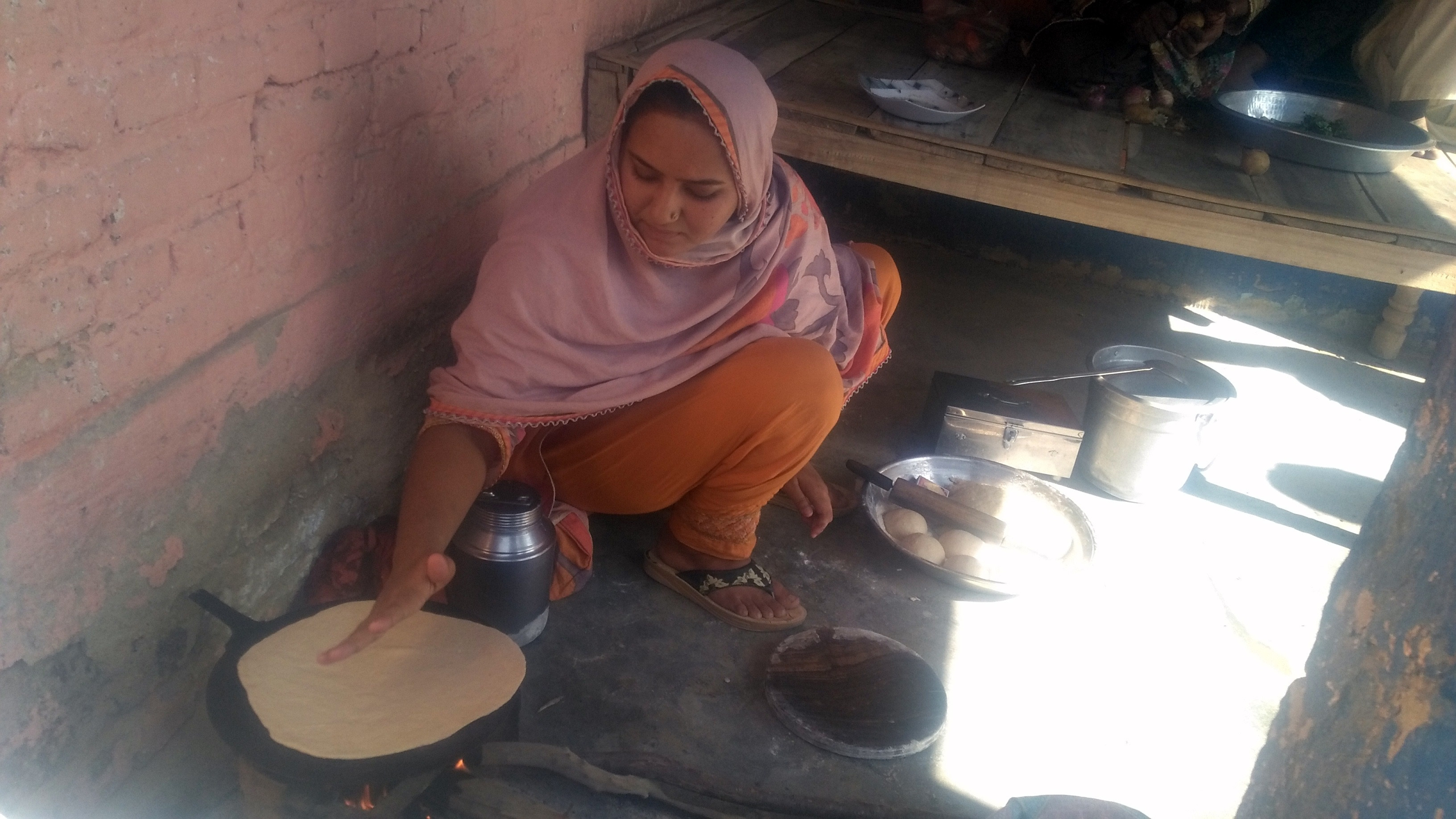
Out of Noor Jehan’s nine children, three are boys, and her four daughters are married. She and her husband Manzoor Hussain have never been to school, but realising the importance of education, she made sure that all her children went to school.
Hussain works as a daily-wage labourer and makes about Rs 700 to Rs1000 a day, while Noor Jehan is an expert at hand embroidery and applique work. But with poor eyesight, she cannot do much embroidery now.
In 2008, their children started going to a community school in Katcha Bunder. When they moved their home to Achiyoon Kubyoon near Rohri, the children began going to the newly-established Riverside High School (RHS) in their new locality.
The school’s name might sound fancy, but that’s about it. The RHS was simply an initiative of the Riverside Development Organisation (RDO), a non-government and non-profit developmental organisation, working to equip viable lives of sequestered communities, especially children and women, through improvement of health and education. The community school Noor Jehan’s children went to in Katcha Bunder previously was also an RDO establishment.
The organisation has taken the initiative of educating the children belonging to slum areas of Sukkur. According to Noor Jehan, the RDO provides free schooling and medical facilities to their children. Apart from that, they have also empowered slum women through various programmes.
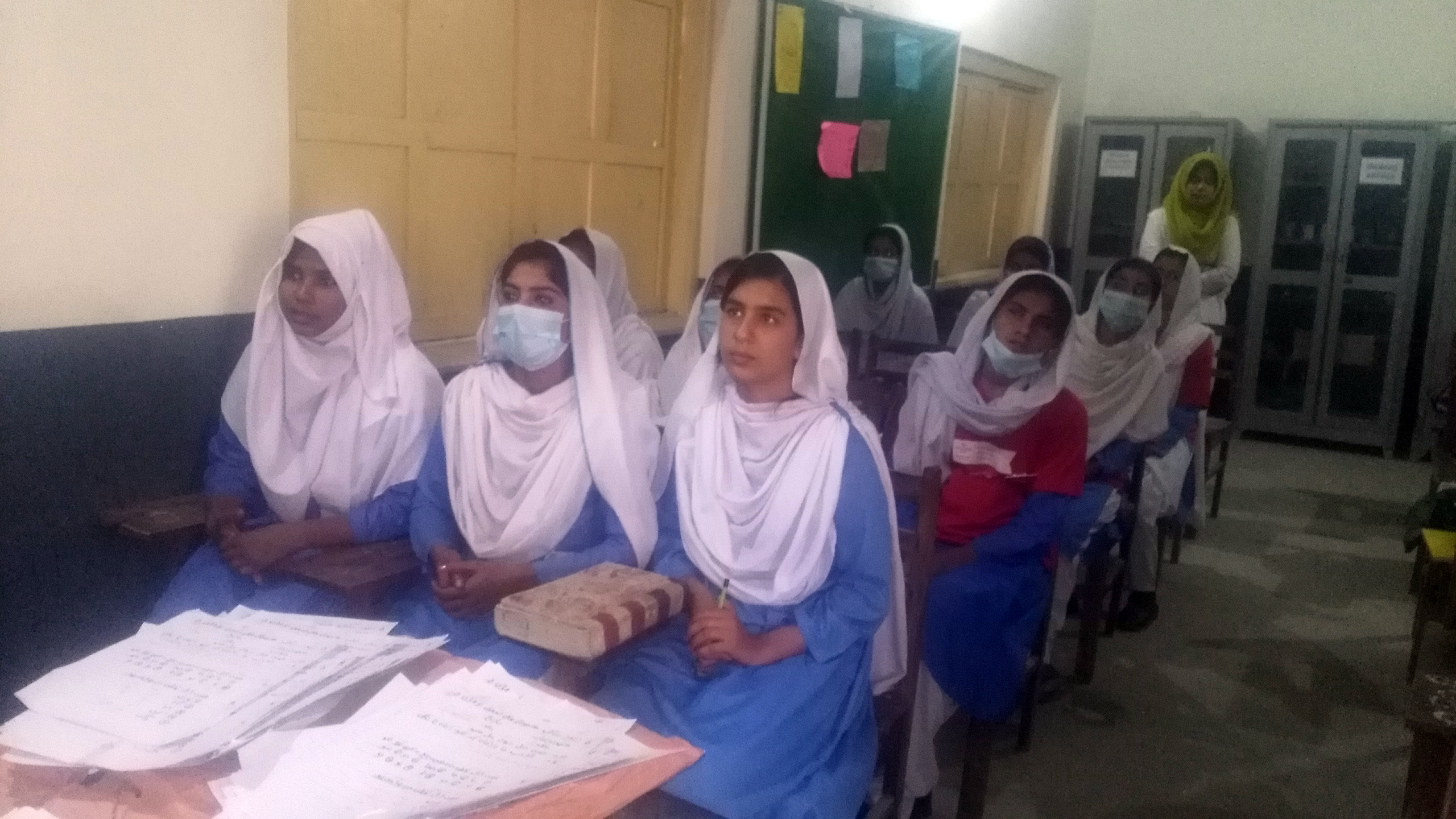
But that’s not all. RDO had another challenge in the form of the age-old custom of child marriages. Marrying off girls of ages 10 to 12, without their consent was a social norm. “My marriage was arranged with Manzoor when I was still inside my mother,” says Noor Jehan, with a chuckle. “Things are much better now and people have started marrying their daughters at a proper age after seeking their consent,” she adds.
Sanam Aijaz Ali, 21, was married off right after she completed her tenth grade at Riverside High School, while her siblings are still in school. “My husband and in-laws are very cooperative and encourage me for further education,” says Sanam. “But I feel that I cannot continue with my education, because of my domestic responsibilities.”
Sanam’s husband and father-in-law, both work as daily-wage labourers at the wholesale fish market in Sukkur, and each of them earns Rs 800 a day. Humaira, 19, the eldest among the six siblings wants to continue her education after completing her intermediate. Her problem is a financial one. “Since my parents cannot afford to pay for my graduation, I teach at a private school in Achiyoon Kubiyoon and give tuitions at home,” she explains. “Once I have enough money for my education, I will graduate. I want to become a teacher and support my family.”
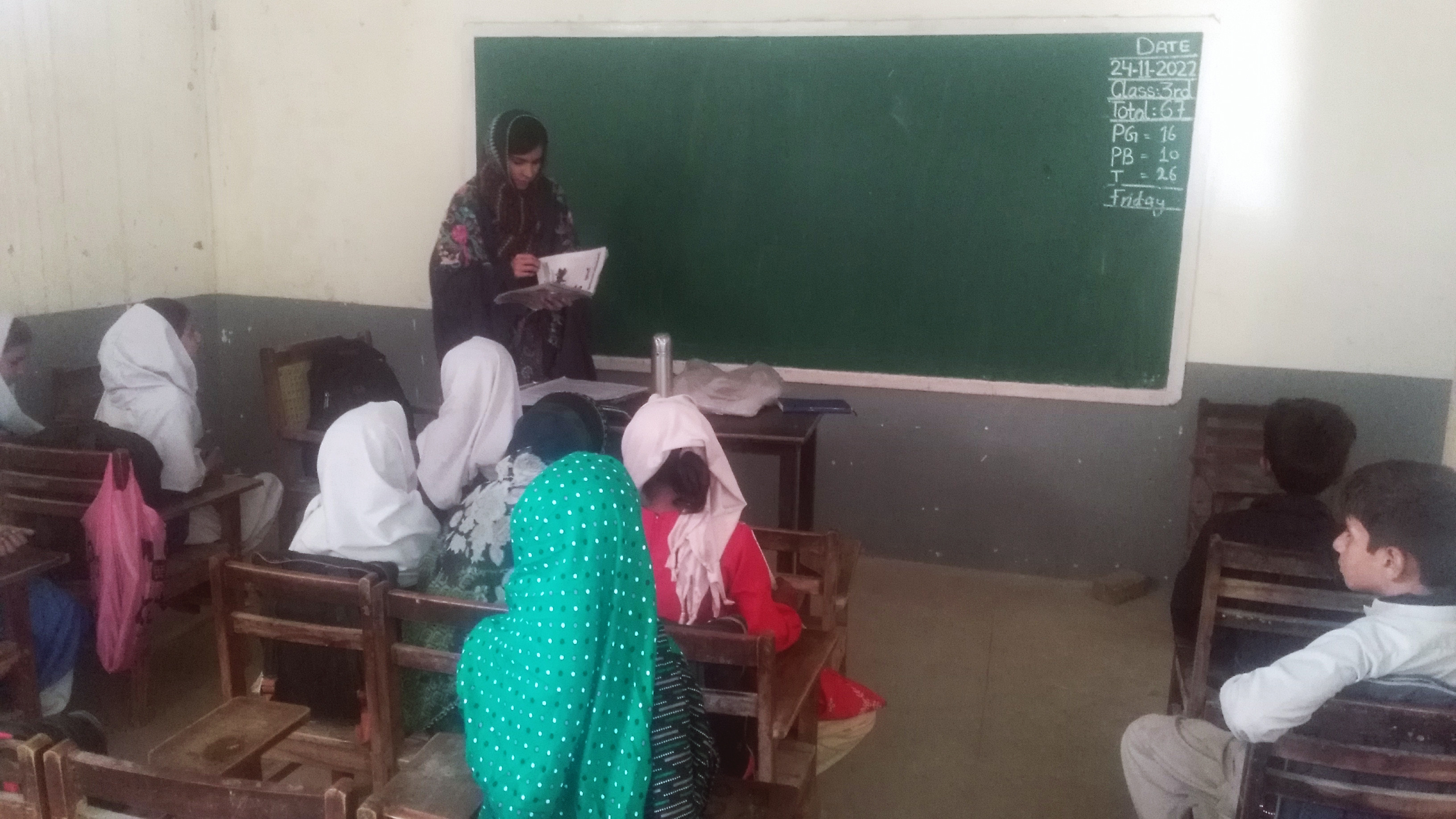
Hajani, a student of class 10 at RHS, is the youngest of nine siblings. Her father works at her school, while her mother is a housewife. But Hajani has set a huge goal for herself, that of becoming a general duty pilot.
Another student of class 9, Komal Shahid Hussain, along with a brother and two sisters study in the same school. Komal also wants to be highly educated, secure her future and to support her family.
Farwa Gul is in class 10, while her younger sister Faiza and two brothers are in class six and one respectively. “I want to be a lawyer,” she says with a confident smile on her face. “My father works as security supervisor at the National Institute of Cardiovascular Disease, in Karachi, and is very supportive of our education.”
Condemning the custom of early marriages and karo kari, Farwa Gul says that a few years ago, girls living in the slum were treated like animals. “Men would either marry them at an early age or declare them kari for their own benefit,” she says. “But, with persistent counselling by the RDO staff, this inhuman custom is almost gone and now the girls are respected as equals.”
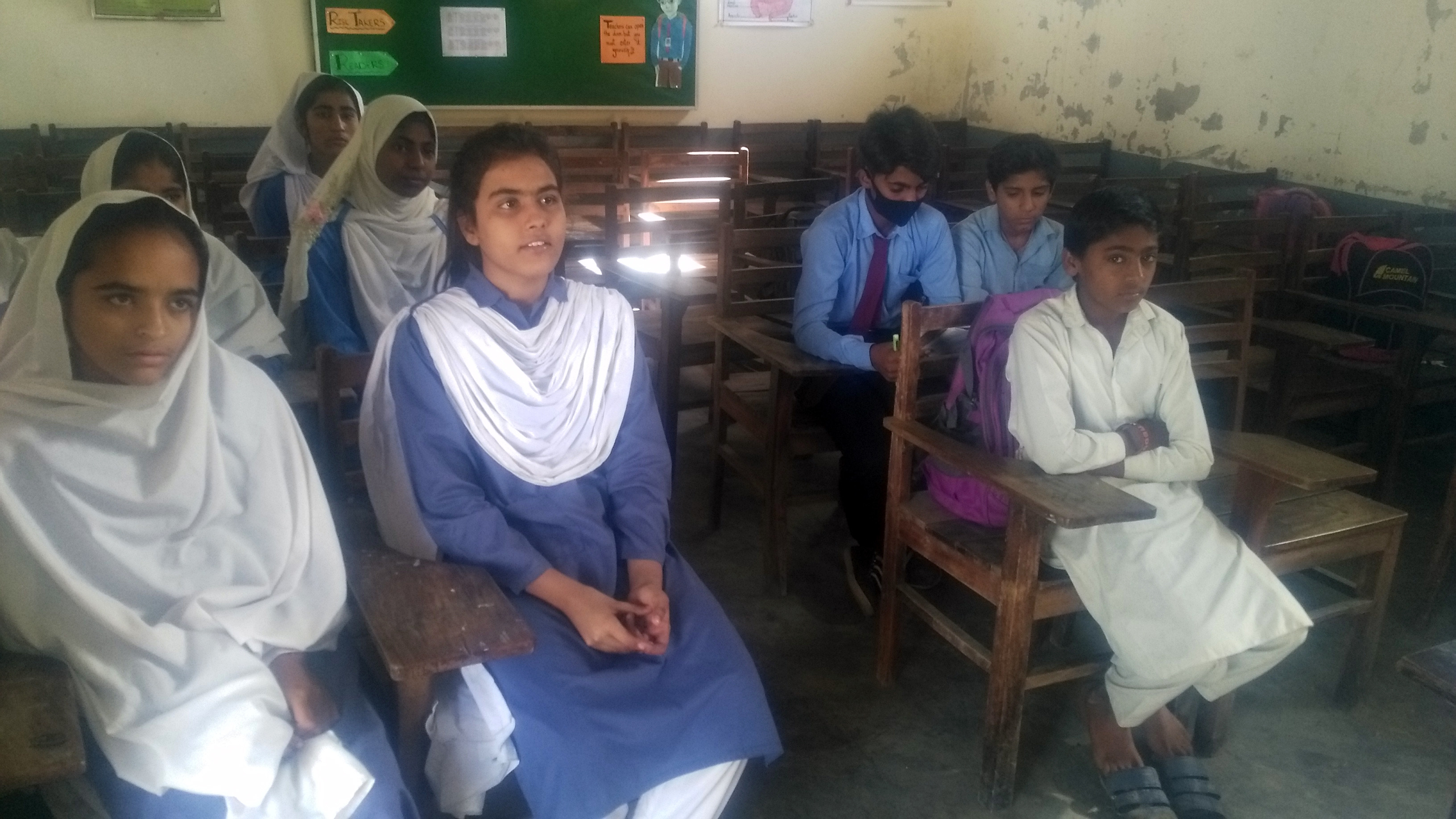
Sadoran Ali Ahmed is currently doing her intermediate and wants to join the Pakistan Army’s intelligence agency, once she has completed her education. “I don’t know why, but it is my dream,” she says smiling.
Shahana Yasir, the principal of the RHS, says the school provides the facility of free education from KG to class 10. “The total enrollment of the school is 731, of which 415 students are girls and the rest, 316, are boys,” she says. “It is interesting to note that girls living in the slums are more talented than the boys, which is why girls always get better grades.”
The founding chairman of RDO, 52-year-old Munawar Gill, is the man behind the upliftment of the slum dwellers of Katcha Bunder. He shares how his dream of bringing revolutionary changes in the lives of slum dwellers materialised. “In 2005, along with couple of friends, I was at the left bank of River Indus, when a fire broke out in the huts on the bank of one of the canals of Sukkur barrage,” Gill says. “We ran to rescue the people, but before we could reach, flames had engulfed most of the huts and people were running for their lives. This horrific incident proved to be a turning point in my life.”
Gill mulled over the idea of helping the poor and needy slum dwellers and soon RDO came into being working on the slogan “To serve humanity is to serve the God”.
“In 2006, the organisation got some support from KindernotHilfe (a German charity organisation) and we established free medical camps on the riverside,” says Gill, recalling the organisation’s earlier days. “This gave us the chance to closely interact with the slum dwellers. In 2008, we established a school in a hut at Katcha Bunder, with three basic components such as basic health, non-formal education and clean drinking water, in mind.”
Talking about the socio-cultural challenges he came across in the slums at the time, Gill says that the people were totally against education and were quite complacent about living without civic facilities. “Social evils and crime were rampant, along with sexual abuse and maltreatment of women and girls,” he says. “Waterborne disease was common as people consumed water directly from the river.”
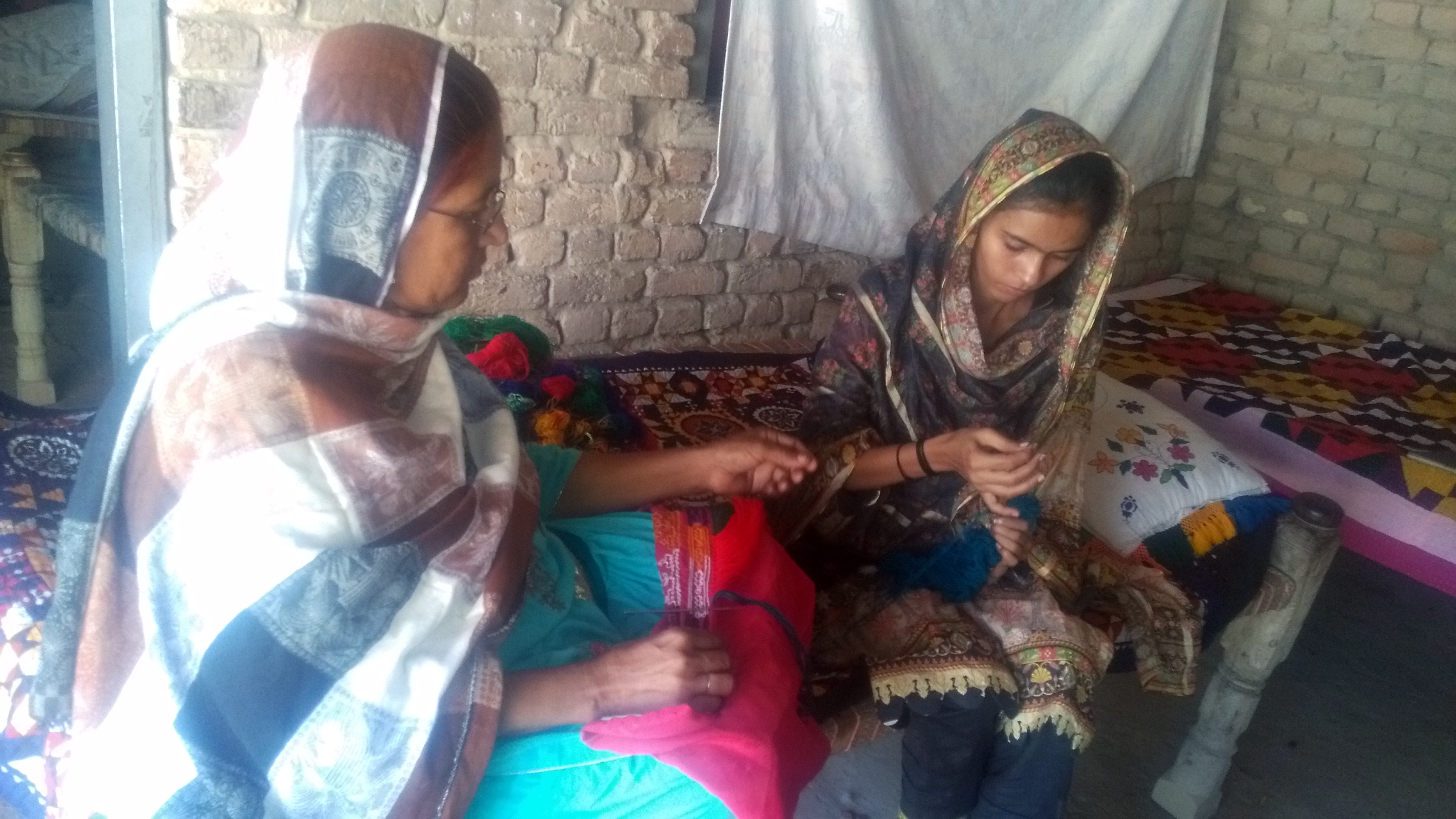
Gill distributed earthen pots from the local market that would filter, store and provide cool water for domestic use. People had to be educated about basic cleanliness and tidiness. Gradually, the RDO organised over 100 self-help groups of local women, who are now engaged in various small businesses and supporting their families.
After the fire incident, Gill along with some like-minded friends established RDO, with the aim to provide basic health facilities, non-formal education and clean drinking water to the slum dwellers especially living in Katcha Bunder, Sukkur. Formally registered in 2014, RDO’s initial projects were free medical camps in the slums. Later, when they had developed a relationship of trust with the slum dwellers, RDO started working for education of the community, starting off with a school in a hut for non-formal education.
While the Gills of this world will always come forward to help the under-privileged, but what about those who are responsible for giving them a civilised life? Only once the authorities accept and acknowledge the existence of slums, these slum-dwellers can be included in the city’s development plans. There needs to be concrete planning, development programmes, and policies in place by the government authorities for the communities living along the banks of River Indus. They need safe housing especially in the wake of climate change, safe water to drink, basic amenities, health, and education facilities. And the government needs to plan with the slum dwellers, not for them, just the way Munawar Gill has done.
Sarfaraz Memon is a freelance writer. All information and facts provided are the sole responsibility of the writer
